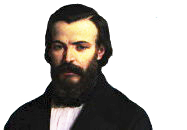





Human Right or Individual Preference?Some months ago Prime Minister Harper described a proposed new trade deal with the European Community as "good news for consumers".Modern life is about shopping. The shopping mall is today's "sacred space". A Walmart ad that appears regularly reads: "Save money. Live better." There is no hint in that ad that the good life is a life of virtue. Instead the good life is one in which we have more money so we can shop more. It would be difficult to find a more offensive image of the human person than that picture of the person as a "consumer". Consumers are simply part of nature. They consume the things of nature in one form or another and are themselves eventually consumed by nature in one way or another. Dogs and cats are consumers. Horses and cows are consumers. Animals in general are consumers because they are simply part of nature; that feature defines them. What singles out the human person is that human persons are not just part of nature. While humans are in one sense part of nature, they also in another sense rise above nature. The Book of Genesis makes reference to this special status of human persons when it speaks of them as made "in the image of God". What does it mean to be created "in the image of God"? It means that human beings are "like God" in the sense that they are self-directed. They have the ability to manage their own lives and therefore also the ability to manage other things. Hence humans, besides being part of nature, are also the managers or stewards of nature. The Book of Genesis indicates this when it explains that humans are created in God's image so that they can be God's managers. "Have dominion over the beasts of the earth", God says to Adam and Eve. This image of the human person as God's steward or manager is fundamental. The reason this is so is that human beings are the only animals that can know God. To appreciate this fact, think back in imagination to the time of the great dinosaurs, some 70 million years ago. The area that we today call southern Alberta was populated by these magnificent creatures. They were surrounded by rich vegetation, lakes, mountains, beautiful flowers and plants. Yet what was the point of it all? Who was able to appreciate it? What did it mean? It was only when the process of evolution reached the point that human beings could appear that there was, within nature, a creature who could look at all this and come to know the God from whom it all came. Only when humans became part of this earth was there an earthly being who could look at it all, and speak back in gratitude and praise to the God from whom it all came. In humans, nature responds to the God who made and sustains it. When the biblical writer said "frost and chill bless the Lord, wind and rain bless the Lord, beasts of the earth bless the Lord" he was uttering the great truth that now all of nature can bless the Lord who made it, because it has a mind and voice with which to do it. It has that mind and voice in human persons! This is what we mean by human dignity. Humans have dignity, they are special, they must be respected, because unlike every other creature on this earth, they can know, love and serve God. Unlike every other creature on this earth, humans are managers for God. This gives them both dignity and responsibility. As we talk about respecting and defending human dignity, one of the most basic things we need to do is to oppose, by our words and our example, the image of the human person as a consumer, as a being who finds fulfillment in shopping. To care about the poor is not just to take steps to help them shop for what they truly need. It is also to take steps to help all of us see that "living better" is not primarily about having more so we can shop more. "Man does not live by bread alone," Jesus told the tempter. The goal of life is not to have more but to be more. Reflections on
|










